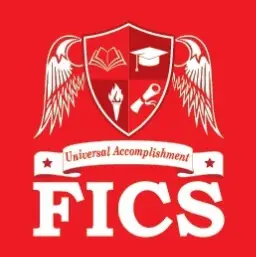Montessori Coaching in Tamil with International Certification
Empower yourself with the knowledge to create nurturing environments where every child thrives. Enroll in our Montessori Teachers Training Course in Tamil and make a difference!
_5141.webp)




Course Overview
Our Montessori Teacher Training Course in Tamil offers a comprehensive curriculum designed to equip educators with the principles and practices of Montessori education. Through hands-on learning and mentorship, participants develop the skills to create nurturing environments and inspire a lifelong love of learning in children.

Six Month Course

Study Notes PDF

Live & Recorded Sessions

Expert Faculty Guidance

Live Exam Through Zoom

One-Year Diploma Certificate

Doubt Clearance Session

CEED International, American Association Of Teachers & Trainers, UK Certifications
Get Started with Full Stack Web Development for Free !
Become Job ready with Entri. Explore the basics of full stack web development with our free classes in Malayalam. Perfect to get aligned with the subject !
Montessori Teacher Skills
Through a Montessori Teacher Training Course in Tamil, you could gain a range of skills essential for working in a Montessori environment, including:
Job Roles
After completing a Montessori teacher training course in Tamil, you can pursue various job roles in the early childhood education field. Here are some potential job roles:
Montessori Teacher
Working directly with children in a Montessori classroom, guiding their learning and development using Montessori principles and materials.
Early Childhood Educator
Applying Montessori principles alongside other educational approaches in traditional early childhood education settings, such as preschools, daycares, and kindergartens.
Assistant Montessori Teacher
Supporting the lead teacher and helping to implement the Montessori curriculum and activities in a classroom.
Montessori Trainer
Instructing and mentoring aspiring Montessori educators in teacher training programs with further training and expertise.
Montessori Consultant
Providing guidance and support to Montessori schools and educators on best practices, curriculum development, and classroom management after gaining experience as a Montessori teacher.
Montessori School Administrator
Taking on a leadership role as an administrator or director of a Montessori school, overseeing operations, staff, and curriculum development with additional training or experience in administration.
Montessori Curriculum Coordinator
Responsible for developing and coordinating the implementation of the Montessori curriculum across multiple classrooms or a whole school.
Montessori Advocate
Promoting Montessori education's principles and benefits to parents, educators, policymakers, and the broader community.
Montessori Teachers Training Course Curriculum
Explore the Montessori Teacher Training Course Curriculum outlined below to gain valuable insights
Blogs
Check out our popular blogs!
As you prepare for your Montessori teacher interview in 2024, it’s crucial to be well-prepared for the questions that will assess not only your knowledge but also your ability to apply Montessori principles in real-life scenarios.
Montessori teachers in India play a crucial role in fostering a love for learning during a child’s formative years. They are responsible for implementing the Montessori method, emphasizing self-directed activities, collaborative learning, and individualized instruction.
The Association Montessori Internationale (AMI) and American Montessori Society (AMS) are globally recognized organizations that offer comprehensive Montessori teacher training programs.
Traditional education and Montessori education are two different approaches to teaching and learning, each with its own methods, philosophy, and goals.
Eligibility
Prerequisites
When starting a Montessori teacher training course in Tamil, specific prerequisites are not required, but certain qualities and qualifications can be beneficial:

Passion for Working with Children
It's important to genuinely love working with children and helping them learn and grow in a Montessori environment.

Patience and Flexibility
Montessori education emphasizes individualized learning and allows children to explore at their own pace. Patience and flexibility are crucial qualities for guiding children through this process.

Interest in Montessori Philosophy
Familiarize yourself with the principles and philosophy of Montessori education. Reading books or articles about Montessori education can help you understand its unique approach.

Observation Skills
Montessori teachers often spend a significant amount of time observing children to understand their individual needs and interests. Developing strong observation skills is essential for effective teaching in a Montessori environment.

Commitment to Continuous Learning
Montessori education is a lifelong journey of learning and growth. Demonstrating a commitment to ongoing professional development and learning new teaching strategies is essential for success as a Montessori teacher.
Why Live Sessions?
Live sessions for Montessori teacher training courses offer numerous advantages, including:

Live Interaction
Live sessions allow direct interaction between instructors and trainees, promoting engagement, clarification of concepts, and immediate feedback.
Interactive Learning Activities
Live sessions often incorporate interactive learning activities such as group discussions, role-playing exercises, and collaborative projects, which enhance comprehension and retention of course materials.
Hands-on Learning
Trainees can take part in practical demonstrations, observe teaching techniques in real-time, and practice activities under the guidance of experienced instructors.
Dynamic Discussions
Live sessions encourage dynamic discussions among participants, enabling them to share insights, ask questions, and learn from each other's experiences.
Access to Resources
Live sessions often include access to supplementary resources such as reading materials, video tutorials, and online forums, enriching the learning experience and providing additional support outside of scheduled sessions.
Demonstration of Best Practices
Instructors can demonstrate best practices in Montessori education through live sessions, showcasing effective teaching strategies, classroom management techniques, and ways to create a stimulating learning environment.
Personalized Support
Instructors can offer personalized support and guidance tailored to individual trainees' needs, addressing their concerns and helping them overcome challenges.
Flexibility
While live sessions offer real-time interaction, many programs also offer recordings or archives of sessions, providing flexibility for trainees to review content at their own pace or catch up on missed sessions.
Course Certificate
Courses Recognised by



Frequently Asked Questions
Key Learning Outcomes
Foster Inclusivity
Implement strategies to support children with diverse learning needs and abilities, ensuring all children feel valued and included in the learning process.
Encourage Independence
Create opportunities for children to participate in practical activities that promote independence and essential life skills, fostering their autonomy and self-confidence.
Embrace the Montessori Approach
Emphasize the role of a Montessori teacher as a guide, facilitator, and evaluator, fostering an environment where children are encouraged to explore, discover, and learn at their own pace.
Personalized Learning
Learn to observe and assess children's individual needs, interests, and progress, tailoring educational experiences to meet each child's unique learning style and developmental stage.
Advocate for Montessori Education
Advocate for the value and importance of Montessori education within the broader educational community, highlighting its holistic approach to child development and its ability to nurture lifelong learners.

Montessori Teacher Training in Tamil - FAQs
Entri News
Advantages of Learning from Entri

Focus on the Child
Emphasize the importance of prioritizing the child's interests, choices, and independence throughout the learning journey, ensuring their active engagement and ownership of their education.

Cultivating Creativity
Foster creativity and imagination by encouraging open-ended exploration, artistic expression, and imaginative play, providing opportunities for children to express themselves authentically and creatively.

Building Resilience
Foster resilience and perseverance in children by allowing them to learn from mistakes, tackle challenges independently, and develop problem-solving skills, empowering them to overcome obstacles and setbacks with confidence.

Enhancing Communication
Equip educators with effective communication strategies to build positive relationships with children, families, and colleagues, facilitating a supportive and collaborative learning environment for all stakeholders.
Who can apply?
- Students
- Freshers
- Professionals
- Job Seekers
- Part Time Workers
- Unemployers








